Every July 9th, Nunavut celebrates its anniversary as Canada’s youngest territory.
In honour of Nunavut Day, here is a list of 15 Inuktitut words travellers or newcomers should know before coming to Iqaluit.
Nunavut has four official languages: English, French, Inuktitut, and Inuinnaqtun. The latter two are Inuit languages. Inuktitut is spoken in more communities, but each has several regional dialects. Interestingly, Nunavut is the only province or territory in Canada that has a dominant language that is neither English nor French, as you can see in the infographic below:
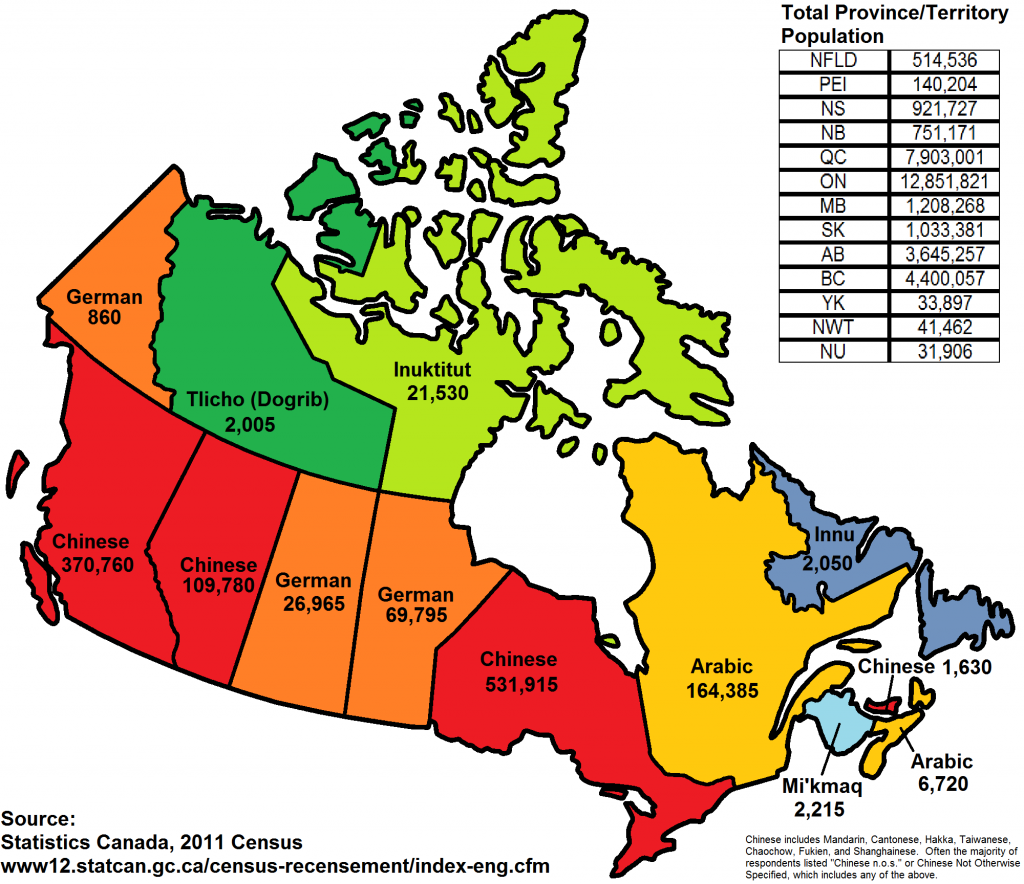
English speakers often have difficulty learning Inuktitut, as its roots and grammar are very, very different. I was lucky to learn Inuktitut from the excellent teaching team at the Pirurvik Centre. They offer language classes all over Nunavut and via their website and app, both of which are called Tusaalanga.
Inuit languages were for many years passed on orally and have only relatively recently been recorded in written form, which can be written in English characters or syllabics. For these reasons, there is no single accepted written language, and spelling varies between regions, communities, and people.
Since this list is for people moving to or visiting Iqaluit, I will reference Tusaalanga’s South Baffin Inuktitut dictionary when possible. Click on the titles to hear how the words should be pronounced (when available)!
You should note that almost everyone in Iqaluit speaks English. However, residents, both Inuit and non-Inuit alike, are very likely to mix the following words into their day-to-day speech, such that for most Iqalummiut, these Inuktitut words are as commonplace as hello and thank you.
15 Must-Know Inuktitut Words
Looking for travel inspiration? Wanderful is a global community for travel-loving women. Connect with us:
1. Nunavut; noo-nah-voot
If you’re coming all the way up here, then you might as well learn how to pronounce “Nunavut” properly. A related word is Nunavummiut (noo-nah-voo-mee-yoot), which is the term used for people who live in Nunavut.
2. Iqaluit; ee-kha-loo-eet
This one’s a little harder to pronounce. If you can’t make the kha sound, then just try to say “ee-ka-loo-eet.” Please, please, do not call the city “Ick-wa-lit,” for the love of frozen beards and eyelashes.
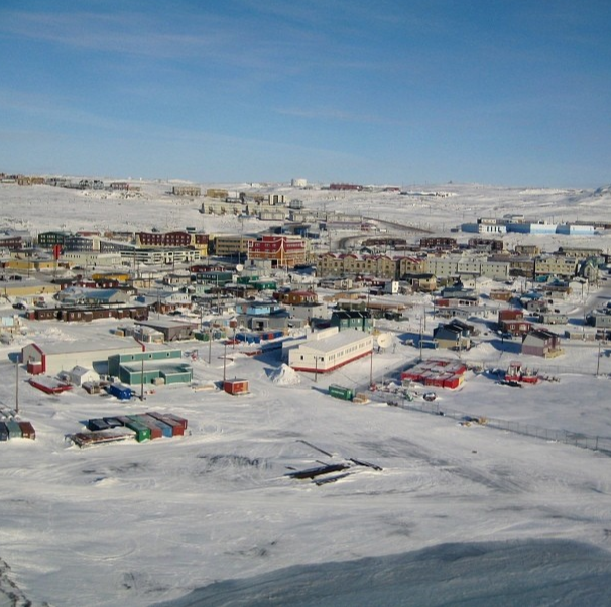
3. Inuit; ee-noo-eet
Another word that is the same in English and Inuktitut, Inuit is the name for the Aboriginal peoples who inhabit Canada’s north.
Inuit is the plural of inuk (ee-nook), and it means “people,” so saying “Inuit people” is redundant.
4. Qallunaat, kha-loo-naht
Originally the Inuktitut word for white people, qallunaat now means non-Inuit.
5. Ullaakuut; oo-laa-koot
Ullaakuut means “good morning” and is used as a general greeting. You can also say ullukuut (oo-loo-koot) for “good afternoon.”
6. Qanuippit?; kha-noo-ee-peet
“How are you” or “what’s up?”
You’ll hear this a lot up here!
7. Qanuinngittunga; kha-noo-ee-neet-toon-gah
The answer to qanuippit, this long word means simply, “I’m fine.”
8. Nakurmiik; na-koor-meek
A very important word in any language: thank you.
9. Qamutik; kha-moo-tick
A wooden sled that is pulled by snowmobiles or sled dogs. It’s also the name of a building right at Iqaluit’s four corners!
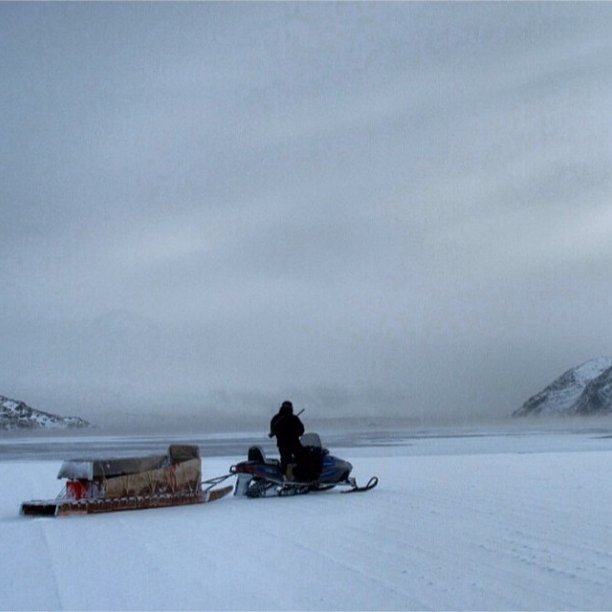
10. Ulu; oo-loo
A crescent-shaped knife that can come in various sizes and makes a great gift.
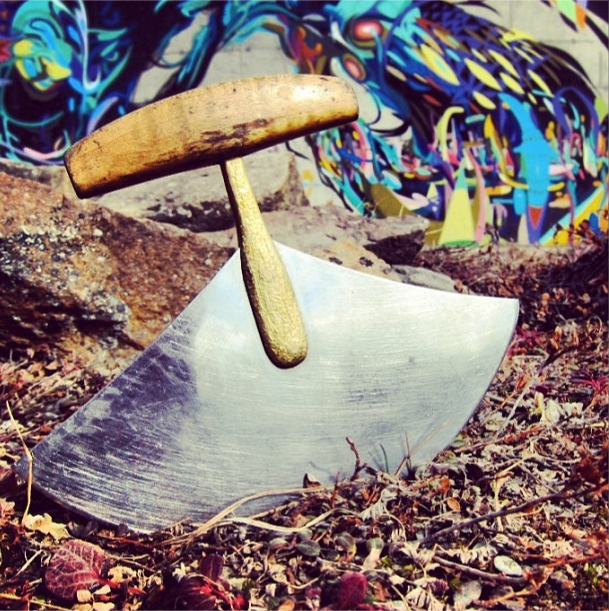
11. Kamiik; ka-meek
The word means “boots” but most commonly refers to handmade sealskin boots.
12. Amauti; ah-mow-tee
An amauti (plural: amautiit) is a special Inuit parka that is made with a pouch on the back to carry children.
13. Mamaqtuq; ma-makh-too
A really fun word to say and also a really popular song by Iqaluit’s favourite band, The Jerry Cans; it means “delicious.”
14. Alianait; ah-lee-ah-nite
Meaning “wonderful,” it is also the name of Iqaluit’s annual Alianait Arts Festival, held every July.
15. Inuit Qaujimajatuqangit; ee-noo-eet khow-yee-mah-yah-too-kha-neet
This phrase roughly translates to “Inuit traditional knowledge,” and it is supposed to inform all governmental decision-making and processes in the territory. To be honest, most people just call it “IQ,” but if you want bonus points from Iqalummiut, practice this saying and more importantly, learn more about what it really means.
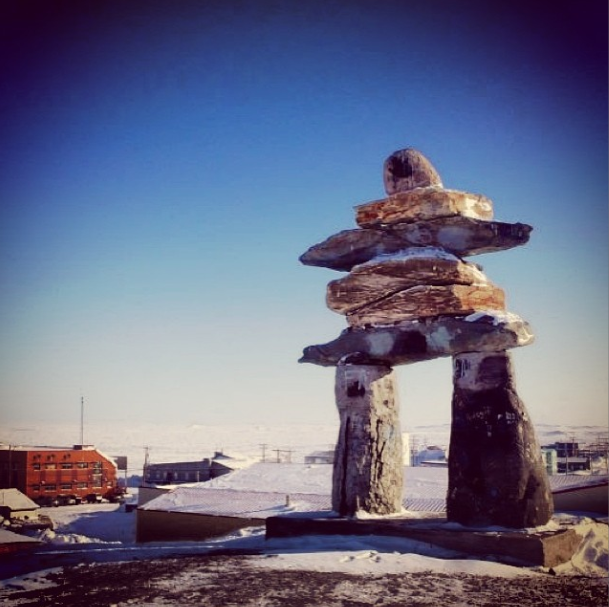
Learned something? Pin it for later!

This post was updated on 15 May 2019.
